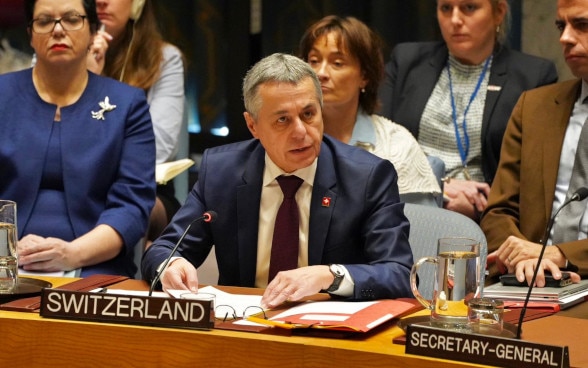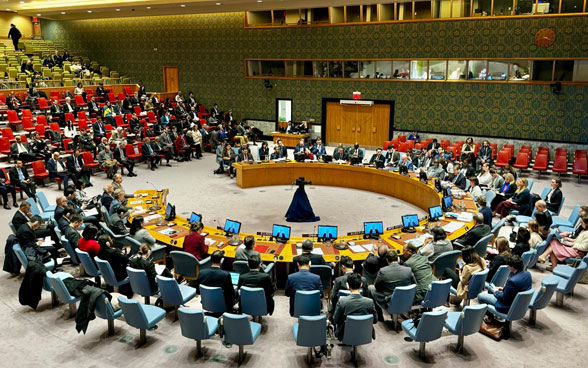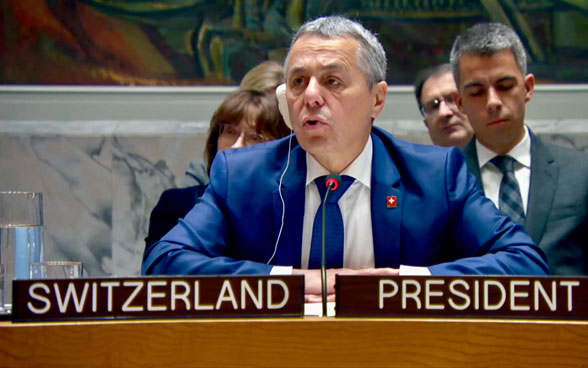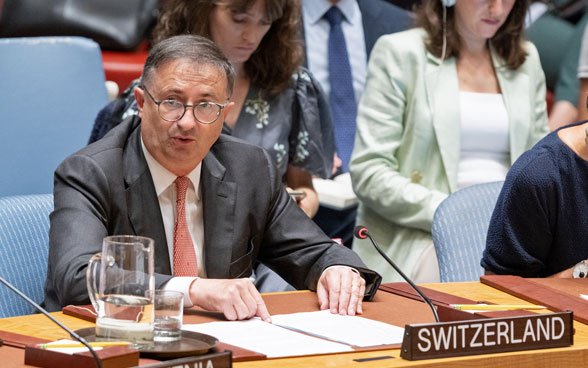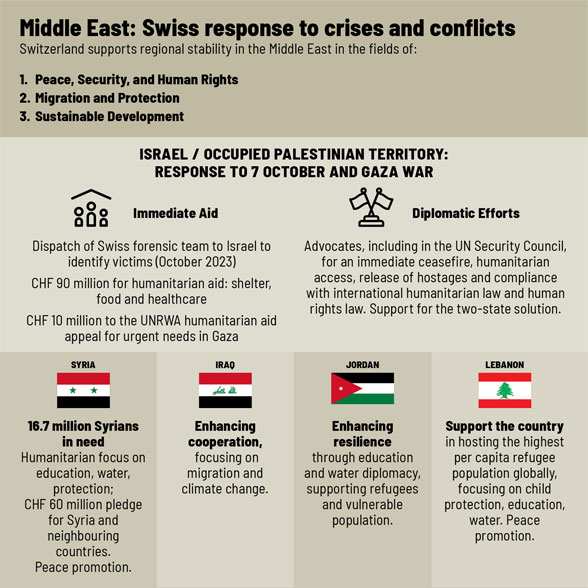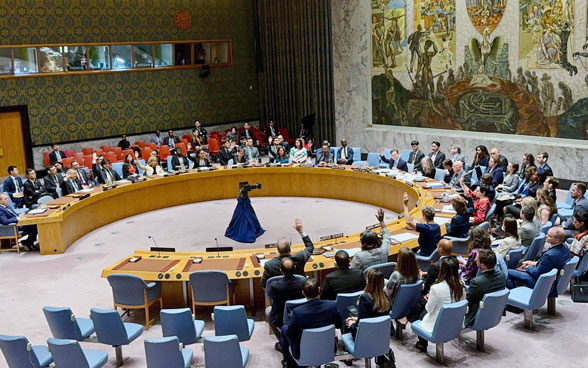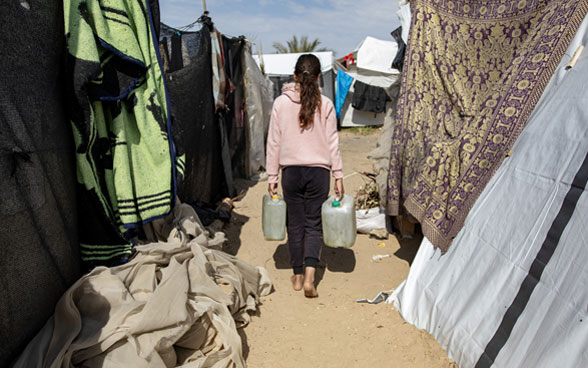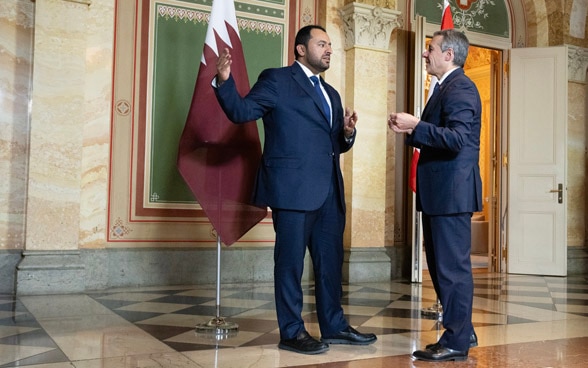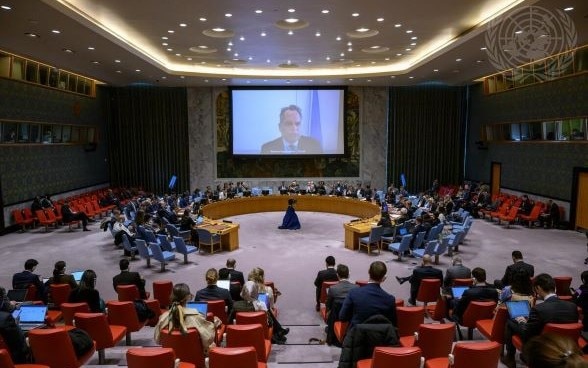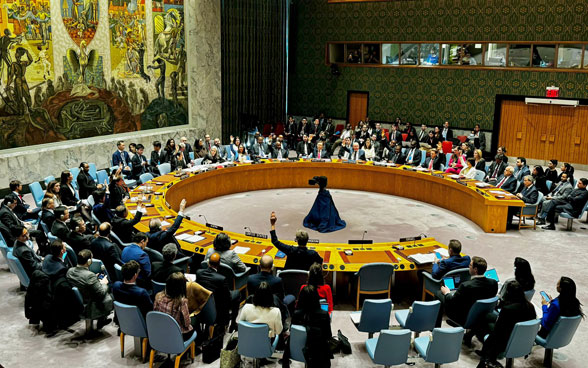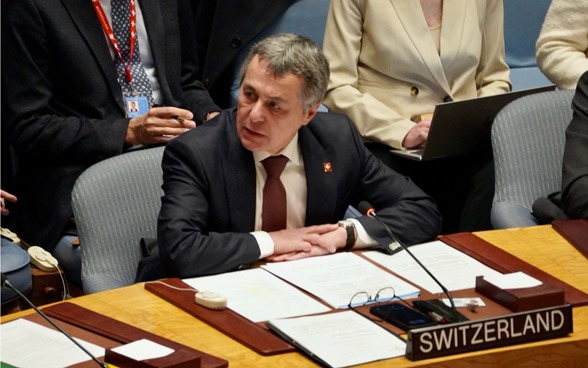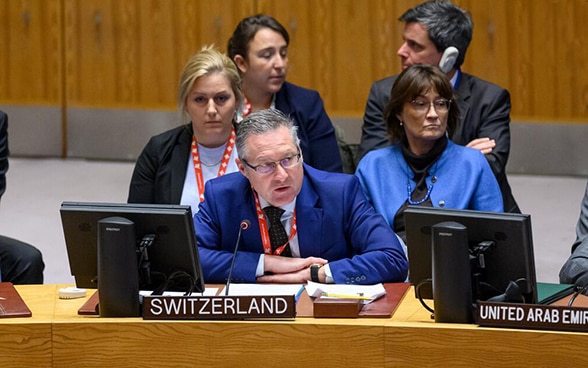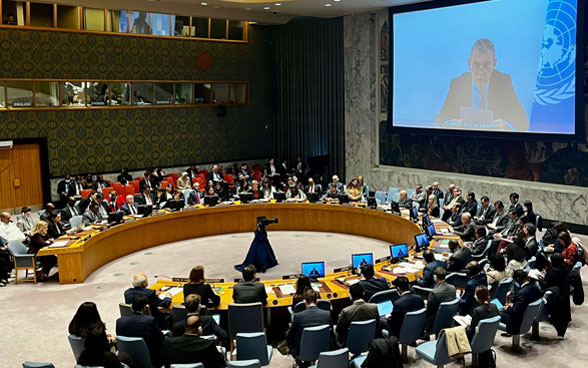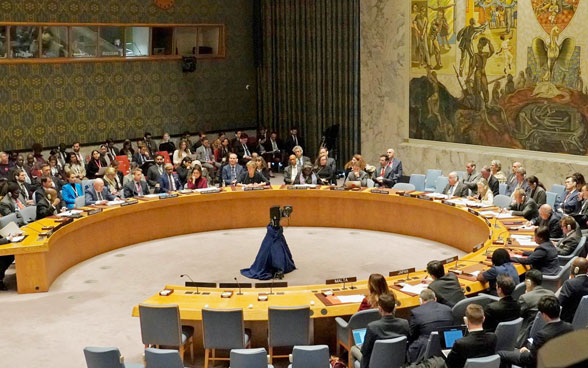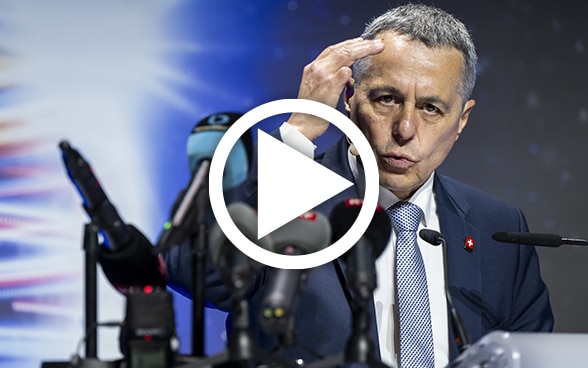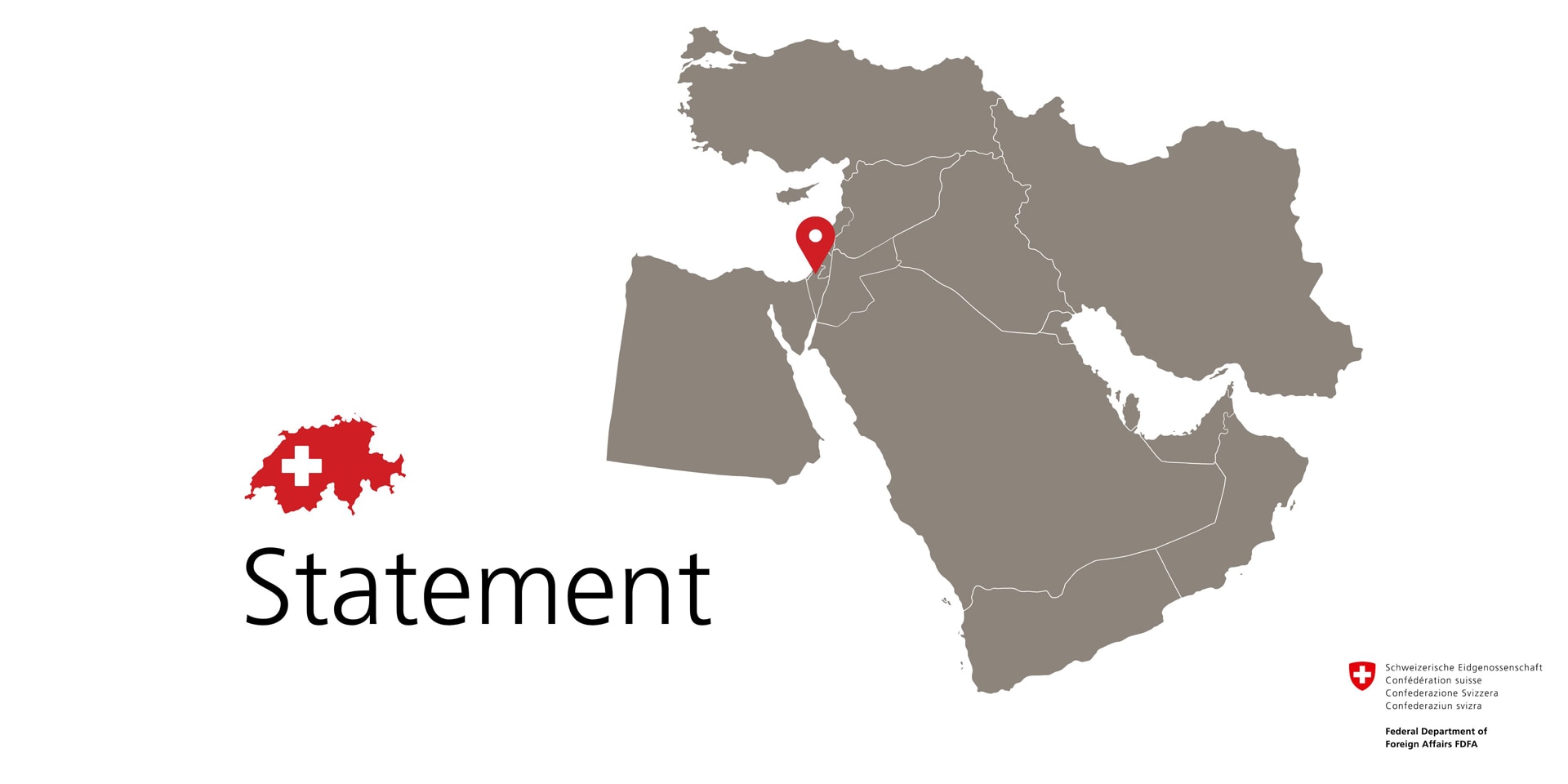UN Security Council: Switzerland calls for a return to the ceasefire in Gaza
During the UN Security Council's quarterly open debate on the Middle East, Switzerland emphasised in its statement last Wednesday the need to enforce the fundamental rules and principles of international law in accordance with the UN Charter in order to restore peace and security in the region.
With regard to the situation in Gaza, Switzerland called on the parties to the conflict to immediately return to the ceasefire. Such an agreement must allow the immediate release of all hostages, the protection of the civilian population, unhindered humanitarian access and a permanent ceasefire.
Switzerland also expressed concern in New York about the catastrophic humanitarian situation in the Gaza Strip. The blockade of humanitarian aid deliveries to Gaza and the attacks on convoys, infrastructure and humanitarian workers are unacceptable. Switzerland recalled that meeting the basic needs of the civilian population and ensuring their protection, including that of humanitarian workers, are obligations under international humanitarian law.
Switzerland emphasised the need to respect international law and remove obstacles to peace. With regard to the West Bank, including East Jerusalem, this includes an end to the illegal occupation, as demanded by the International Court of Justice. The expansion of settlements, accompanied by settler violence, must therefore be stopped immediately.
Finally, Switzerland stressed the importance of a negotiated two-state solution in which Israel and Palestine exist side by side within secure and recognised borders. Such a solution would be a decisive step towards peace in the entire region.
International Court of Justice: Switzerland emphasises Israel's obligations towards the UN in the occupied Palestinian territory
On Monday 28 April 2025, the International Court of Justice (ICJ) opened a week of hearings on Israel's obligations towards the United Nations, other international organisations and third States in the occupied Palestinian territory. Switzerland, represented by Franz Perrez, Director of the Directorate of International Law (DIL) of the Federal Department of Foreign Affairs (FDFA), presented its position on Friday 2 May during the hearings in The Hague.
In his intervention (PDF, 10 Pages, 627.1 kB, French), Ambassador Perrez reiterated the importance of respecting international law. In its statement, Switzerland emphasised Israel's obligations regarding the activities of these organisations and states in the occupied Palestinian territory. Switzerland also stressed that security concerns must be addressed by law and are not a purely subjective matter. They do not allow for the evasion of international obligations and their invocation is subject to restrictive criteria. The security threat must be clearly and specifically identified, the security interest concerned must be of particularly high importance, and there must be a causal link between the threat and the security interest. In addition, general principles of international law such as good faith, necessity and proportionality apply. Switzerland emphasised Israel's obligation to respect its international commitments, in particular those relating to the UN Charter, privileges and immunities, and international humanitarian law. This is in the interests not only of the international legal order, but also of Israel, as it would increase both the credibility and legitimacy of measures taken by Israel and confidence in its good faith.
In December 2024, the UN General Assembly adopted by a large majority a resolution, presented by Norway, requesting the ICJ to give an advisory opinion ‘as a matter of priority and with the utmost urgency’. The resolution asks the ICJ to clarify what Israel is required to do regarding the presence of the UN, its agencies, international organisations or third States to ‘ensure and facilitate the unimpeded delivery of urgent supplies essential for the survival of the Palestinian civilian population’. The ICJ's advisory opinion is expected to be delivered in the coming months.
Statement by Switzerland at the International Court of Justice, 2 May 2025 (PDF, 10 Pages, 627.1 kB, French)
Statement by Switzerland on the situation in the Middle East, UN Security Council, 30 April 2025


